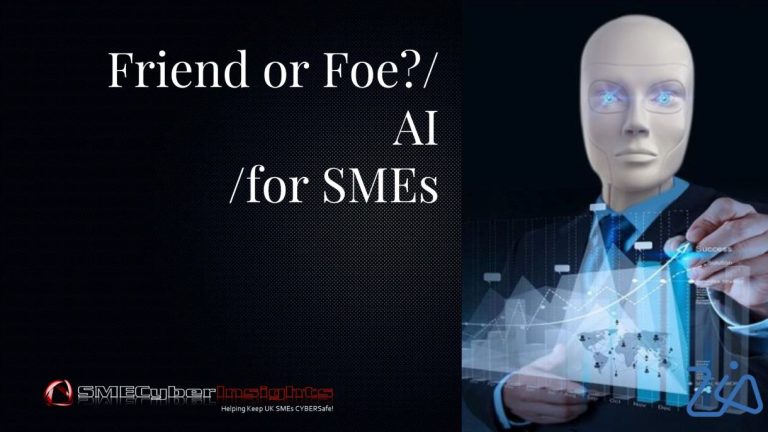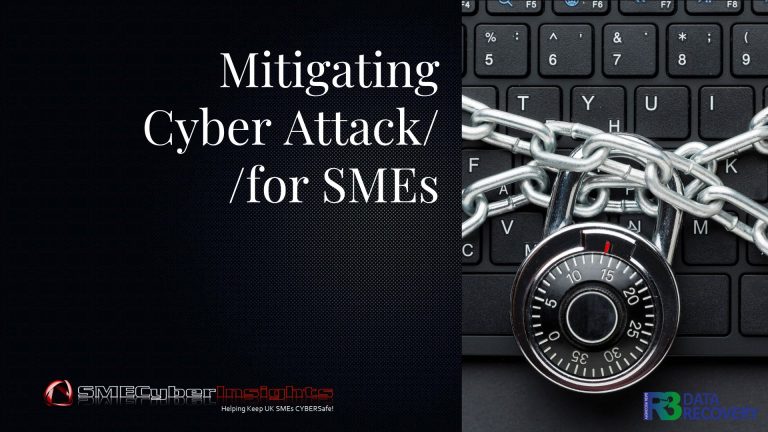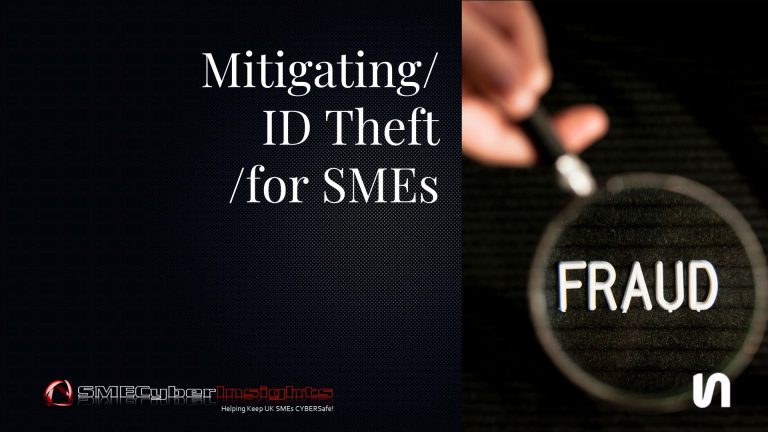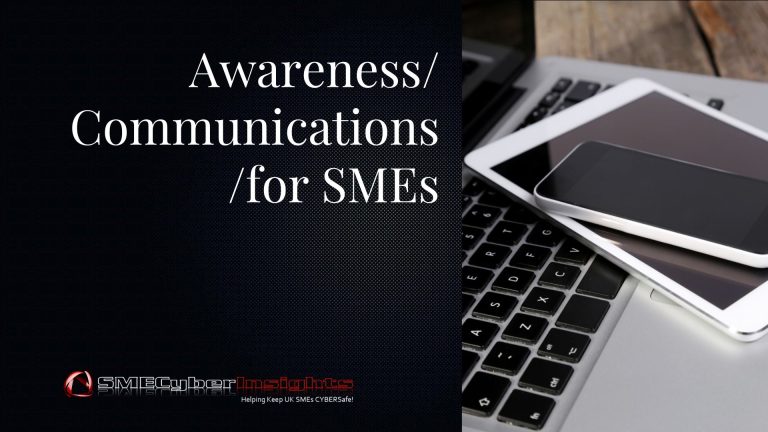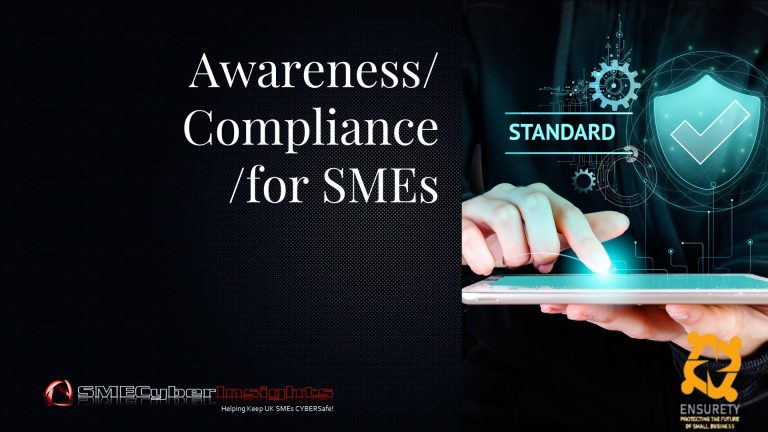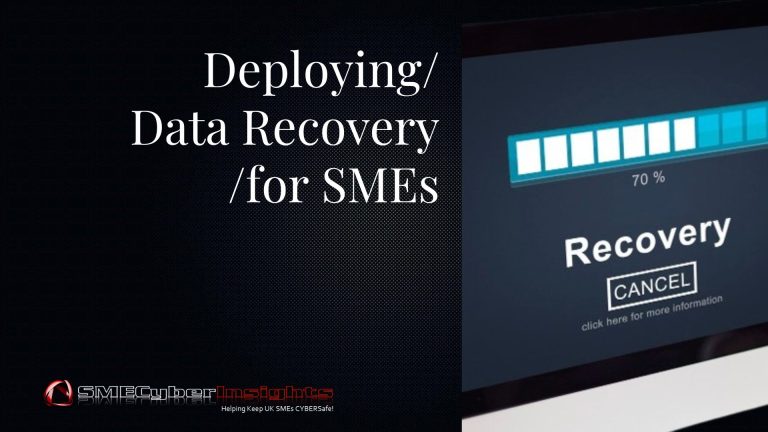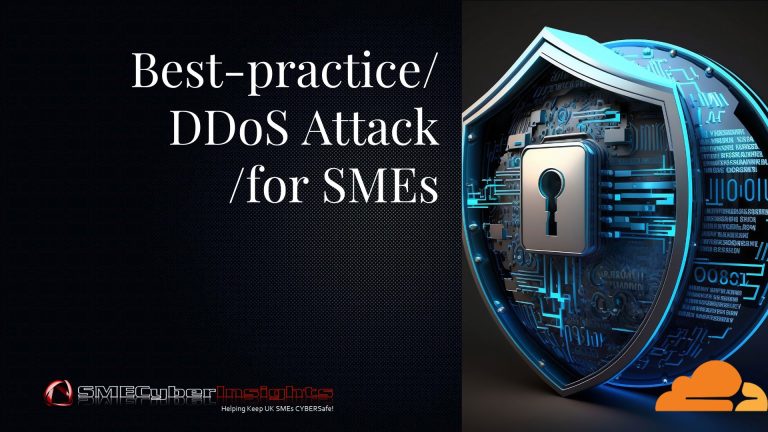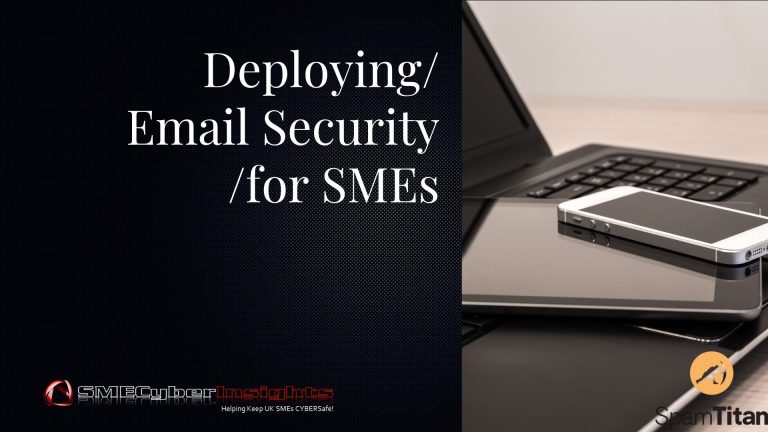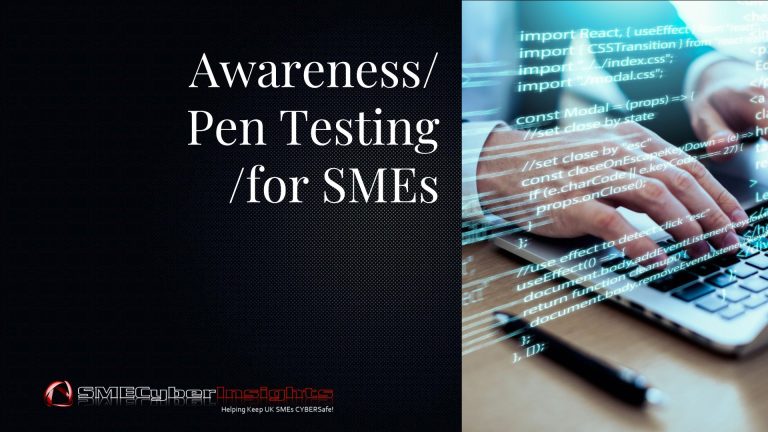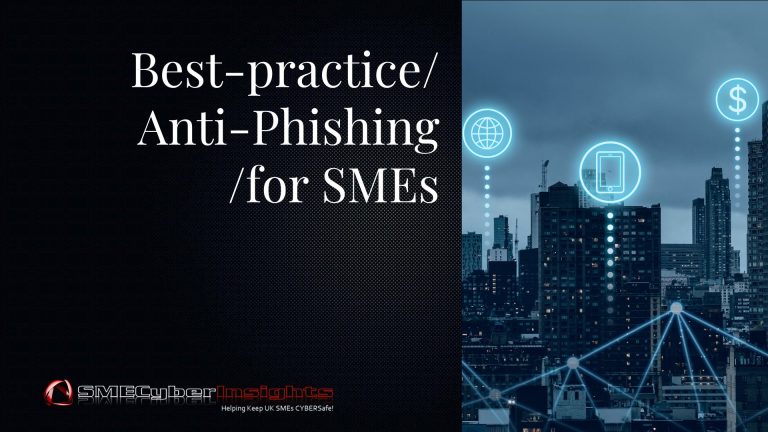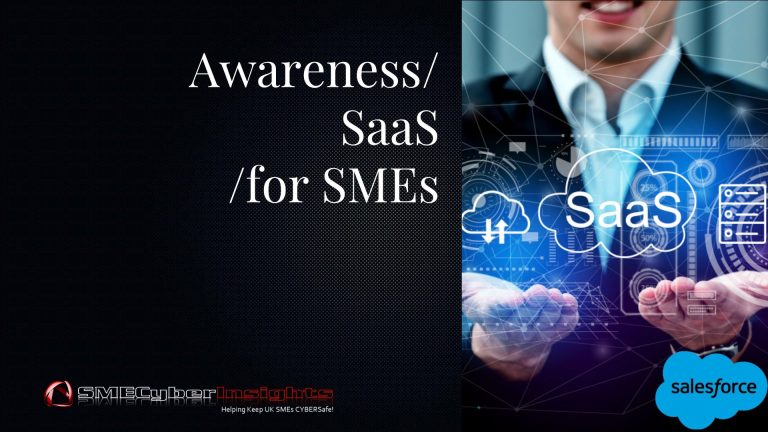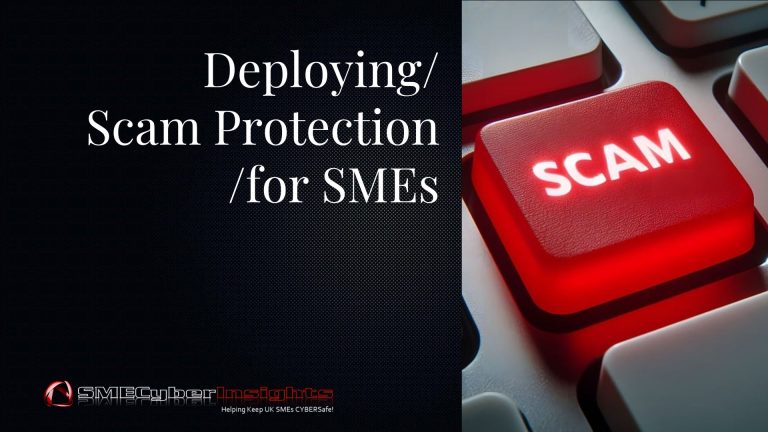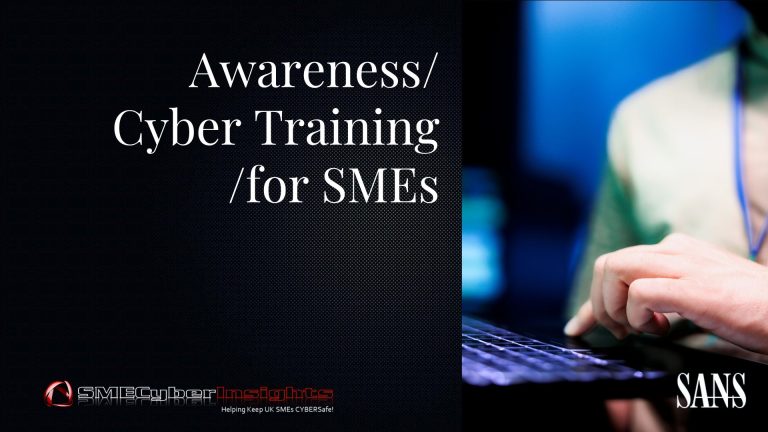UK SMEs Face New Cyber Threat: Scattered Spider Gang Uses Psychology Over Malware in 2025
July 10, 2025Helping Keep Small Business CYBERSafe!
Gibraltar: Thursday 10 July 2025 at 12:30 CET
UK SMEs Face New Cyber Threat: Scattered Spider Gang Uses Psychology Over Malware in 2025
By: Iain Fraser – Cybersecurity Journalist
Published in Collaboration with: Nord VPN
SMECyberInsights.co.uk – First for SME Cybersecurity
#SMECyberInsights #SMECyberSecurity #SMECyberAwareness #CyberSafe #SME #SmallBusiness #ScatteredSpider #EmailSecurity
The cybersecurity landscape for UK small and medium enterprises (SMEs) has dramatically shifted as the notorious “Scattered Spider” cybercrime group – also known as UNC3944, Oktapus, and Muddled Libra – abandons traditional malware attacks in favour of sophisticated psychological manipulation tactics according to Oliver Paterson, Director of Product Management, VIPRE Security Group
This evolution represents a critical threat to UK SMEs that continue to trade with European partners, as these attacks specifically target the human element rather than technical vulnerabilities, making them particularly dangerous for resource-constrained businesses.
Why UK SMEs Trading with Europe Are Prime Targets
Recent attacks on major UK retailers including M&S and Co-op, attributed to Scattered Spider, have demonstrated the group’s focus on UK businesses with European connections. For SMEs maintaining trade relationships across Europe, this presents unique vulnerabilities:
Cross-Border Data Flows: UK SMEs handling European customer data must comply with both UK GDPR and EU regulations, creating complex data protection requirements that criminals exploit during social engineering attacks.
Extended Attack Surface: European trading relationships often require integrated IT systems, remote access capabilities, and shared digital infrastructure – all of which Scattered Spider exploits through their “Living off the Land” tactics.
Regulatory Compliance Pressure: The European Data Act’s 2024 implementation has created additional compliance burdens for UK SMEs trading with EU partners, potentially diverting security resources from threat prevention.
The Psychology-First Attack Strategy
Unlike traditional cybercriminals who rely on malware, Scattered Spider weaponises human psychology through sophisticated social engineering. According to Oliver Paterson, Director of Product Management at VIPRE Security Group, these attacks represent a fundamental shift in cybercrime methodology.
Core Attack Techniques Targeting SMEs:
Voice Phishing (Vishing): Criminals impersonate legitimate employees or IT support staff, using AI-powered voice cloning to convince targets they’re speaking with trusted colleagues.
SMS Phishing (Smishing): Text-based attacks that appear to come from internal systems or European business partners, particularly effective against SMEs with limited security awareness training.
Chat-Based Manipulation: Attackers infiltrate business communication channels, exploiting the informal nature of modern workplace messaging to gain access credentials.
Multi-Factor Authentication Bypass: Through SIM-swapping and helpdesk manipulation, criminals bypass MFA protections that many SMEs consider their primary security layer.
The European Trade Connection: Why SMEs Are Vulnerable
For UK SMEs maintaining European business relationships, several factors increase vulnerability to Scattered Spider attacks:
1. Complex Digital Infrastructure
European trading requires sophisticated digital systems including:
* Cross-border Email Security systems
* Shared customer databases
* International payment processing
* Multi-jurisdictional compliance monitoring
2. Remote Access Requirements
European partnerships often necessitate:
* Remote desktop access for international colleagues
* Cloud-based collaboration platforms
* VPN connections across multiple countries
* Third-party vendor access to internal systems
3. Regulatory Compliance Complexity
UK SMEs face layered compliance requirements:
* UK GDPR implementation
* EU Data Act compliance
* Digital Services Act requirements
* Sector-specific European regulations
Critical Warning Signs for UK SMEs
Security experts recommend UK SMEs monitor for these specific indicators of Scattered Spider activity:
Remote Access Anomalies:
* Unusual spikes in remote access sessions using AnyDesk, ScreenConnect, Pulseway, or RustDesk
* Remote access outside normal business hours
* Connections from unfamiliar European or international locations
Authentication Irregularities:
* Multiple MFA reset requests via phone channels
* Unrecognised SIM-swap alerts
* Unexpected one-time passwords sent to employees
* Requests for MFA resets claiming European system issues
System Tampering:
* Security tools mysteriously disabled
* Unauthorised actions in admin consoles
* Anomalous EDR endpoint activity
* Unusual lateral movement patterns using valid credentials
Essential Protection Strategies for European-Trading SMEs
1. Enhanced Email Security
Implement advanced email security solutions that can detect AI-generated phishing attempts, particularly those mimicking European business partners or regulatory bodies.
2. Multi-Layered Authentication
* Deploy hardware-based MFA tokens for critical systems
* Implement callback verification for all MFA reset requests
* Establish out-of-band confirmation for European partner communications
3. Human-Centric Security Training
* Regular social engineering awareness training
* Specific guidance on European compliance scam tactics
* Incident response procedures for suspected social engineering
4. Network Segmentation
* Isolate European trading systems from core infrastructure
* Implement zero-trust architecture for cross-border access
* Monitor all international data flows
5. Vendor Risk Management
* Verify all European partner communications through independent channels
* Implement strict approval processes for new vendor access
* Regular security assessments of cross-border digital connections
The Broader Implications for UK SME Cybersecurity
The rise of Scattered Spider represents more than just another cybercrime group – it signals a fundamental shift in how criminals target UK SMEs with European connections. Traditional security solutions focused on malware detection may prove inadequate against these psychology-based attacks.
For UK SMEs maintaining European trade relationships, this threat is particularly acute because:
* Regulatory Complexity Creates Confusion: Criminals exploit uncertainty around UK-EU data protection requirements
* Cross-Border Communications Provide Cover: International business communications mask malicious contact attempts
* Resource Constraints Limit Response: SMEs may lack dedicated security staff to implement comprehensive protection measures
Conclusion: A Call to Action for UK SMEs
While reports suggest Scattered Spider has recently targeted the aviation industry following retail sector exploits, no industry – particularly those with European connections – can consider themselves safe. The group’s focus on UK businesses with international ties makes European-trading SMEs prime targets.
The solution lies not in traditional cybersecurity approaches, but in recognising that modern cybercrime targets people, not just technology. UK SMEs must implement human-centric security controls, establish rigorous verification protocols for sensitive IT requests, and maintain heightened awareness of social engineering tactics.
As VIPRE Security Group emphasises, this evolving threat landscape demands integrated security solutions designed specifically for modern attack methods where deception, rather than code, serves as the primary entry point into enterprise networks.
For UK SMEs continuing to trade with European partners, the message is clear: invest in comprehensive security awareness training, implement robust verification procedures, and treat every unexpected communication as potentially malicious. The cost of prevention is invariably lower than the cost of recovery from a successful Scattered Spider attack.
Key Takeaways for UK SMEs:
* Scattered Spider attacks exploit human psychology rather than technical vulnerabilities
* European-trading SMEs face heightened risk due to complex digital infrastructure
* Traditional antivirus solutions may not detect these attacks
* Multi-layered security approaches focusing on human behaviour are essential
* Regular security awareness training must address social engineering tactics specifically
What is a VPN & Does my SME Need one? A VPN is a Virtual Private Network a method of securing your communications credentials. When it comes to Small and Medium-sized enterprises (SMEs), the choice of VPNs can significantly impact the security and efficiency of their operations.
The NordVPN service allows you to connect to 5600+ servers in 60+ countries. It secures your Internet data with military-grade encryption, ensures your web activity remains private and helps bypass geographic content restrictions online. Join NordVPN Today and Save up to 73% and Get 3 months Extra Free – Rude Not to …!
UK Small Business Owner? Join SMECyber Free Now! & Access the SME Cyber Forum – Read, Learn, Engage, Share …
The Latest SME Cybersecurity News, Threat Intelligence & Analysis, Timely Scam Alerts, Best-practice Compliance, Mitigation & Resources specifically curated for UK Based SMEs in a Single Weekly Email direct to your Inbox or Smart Device together with Unrestricted Free Access to our entire SME Cyber Knowledge & Tutorial Library.
